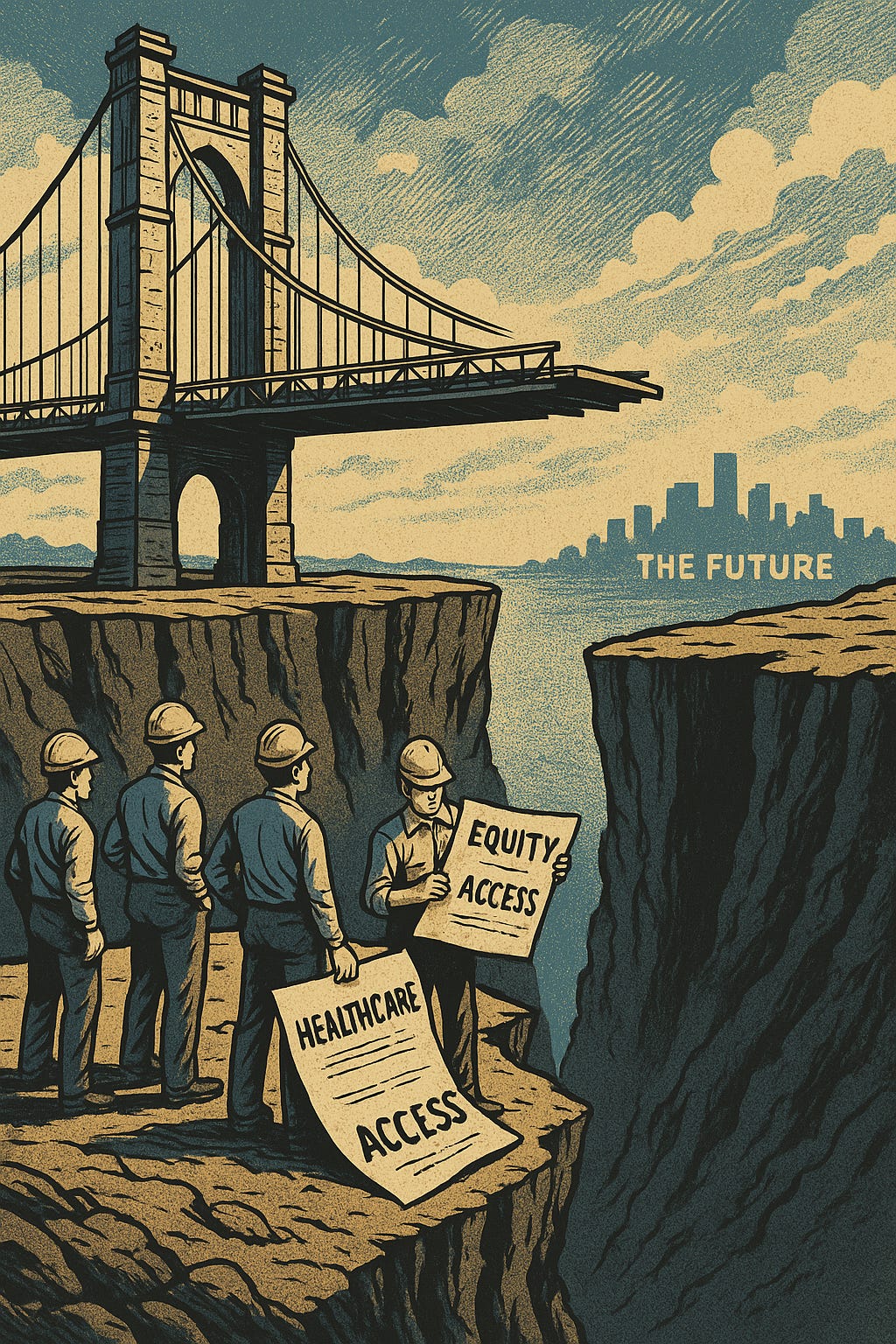
A new bipartisan deal to reopen the federal government is gaining steam, and it stinks of surrender. The plan packages three funding bills with a stopgap measure that kicks the can down the road to January 30. But the real headline? Democrats dropped their core demand: the extension of ACA subsidies that help millions afford health insurance. In its place is a promise to vote on the subsidies later. A promise from a Republican-led Senate that has spent years trying to gut the ACA altogether.
Tucked into the bill, almost unnoticed, are fresh restrictions on reproductive health access, another chisel chipping away at women’s bodily autonomy. The press barely blinked, but the base noticed.
Rank-and-file Democrats and progressive leadership are sounding the alarm: this compromise does nothing to protect healthcare or fulfill the shutdown’s original purpose: spotlighting the GOP’s sabotage of the safety net to enrich the wealthy. Coming just days after promising electoral wins in states like New York City and Virginia, this deal feels like a party voluntarily breaking its own momentum.
It also opens a larger conversation, one that’s long overdue, about the difference between moderation and centrism.
Centrism is a posture. It reflexively seeks middle ground, even when that “middle” has shifted deep into the right-wing abyss. It’s not about governing outcomes, it’s about appearing reasonable, often to a political class or media ecosystem that fetishizes bipartisanship over justice.
Moderation, by contrast, is a strategy. It’s about compromise with a purpose like building durable coalitions, buying time, and making painful trade-offs only when they move the larger struggle forward.
We’ve seen moderation done right, even heroically. During the New Deal and Great Society eras, Black leaders like A. Philip Randolph and Walter White made calculated decisions to work with Democratic presidents who refused to touch lynching or segregation. FDR, under pressure from Southern Democrats, privately told civil rights leaders he couldn’t risk backing anti-lynching laws without losing his entire legislative agenda. It was a cruel bargain, but civil rights organizers saw an opening: if they couldn’t end Jim Crow in one blow, they could at least secure jobs, federal aid, and institutional footholds, all of which would build the leverage needed for bigger wins.
Randolph famously called off a 1941 March on Washington after FDR issued Executive Order 8802 banning racial discrimination in defense jobs. It wasn’t everything, but it was something, and it proved that shrewd compromise could yield concrete gains without abandoning the moral horizon. The fruits came decades later: the Civil Rights Act, the Voting Rights Act, and finally, an anti-lynching law — a century late, but born from that long arc of strategic patience.
That was moderation.
What we’re seeing in today’s shutdown deal is centrism, performative, empty, and increasingly dangerous. Democrats didn’t trade for progress. They gave up their key demand, real and immediate healthcare relief, in exchange for a nonbinding vote and a handful of news-cycle applause about “bipartisanship.” Worse, they swallowed GOP anti-abortion riders in the process. That’s not a strategy. That’s surrender.
And it’s part of a larger crisis inside the Democratic Party, a leadership class still operating inside a post-Reagan, post–Meet the Press fantasy where voters reward moderation and good faith. But that America is gone. What’s left is a Republican party tragically fueled by extremism and a Democratic base that’s tired of losing ground while being told to clap for clever process moves.
Universal health care has been a North Star for over a century. We are, once again, watching it get fed to the fire, not for a win, but for the illusion of stability.
There is a reckoning underway in the Democratic coalition. It may fracture the party. It may cost elections. But it’s happening because people are done mistaking polite collapse for principled governance. The voices trying to resurrect a bipartisan consensus that no longer exists, those clinging to centrism as a brand, are dragging the party toward irrelevance.
We don’t need more middle-ground choreographers. We need people who know what time it is and are willing to live in the rupture of now.
Trump, Myth, and the Sunday Ritual
If you watched the Washington Commanders game yesterday, you might’ve heard a familiar voice crackling through your TV speakers. The president, not giving a policy speech or holding a rally, but chiming in from the commentator’s booth, talking over a play like a man who’s always belonged there.







